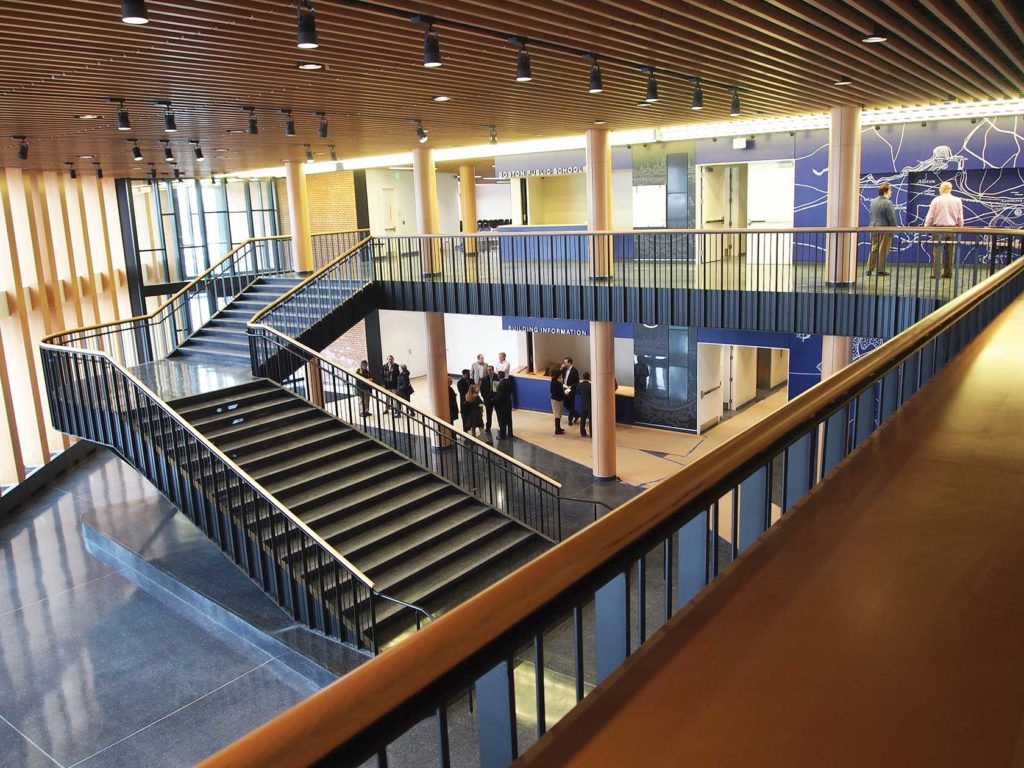Voters will weigh in on school committee
Non-binding question calls for a return to an elected body

After 26 years of Boston’s School Committee being appointed by the city’s mayor, a question on this year’s ballot reopens the conversation on returning to an election-based system.
Question 3, a nonbinding referendum, asks voters “Should the current appointed school committee structure be changed to a school committee elected by the residents of Boston?” Response to the question will inform an accompanying home-rule petition ushering in an eventual return to committee elections.
“We have been without a voice for far too long,” said City Councilor Julia Mejia, one of the petition’s authors. “What’s on the ballot for November 2 is … a vote to give us the opportunity to have that conversation.”
Co-authored with Councilor Ricardo Arroyo, the petition would ask the City Council to design a system, most likely similar to that of the City Council itself, with one seat for each of the nine electoral districts and three at-large seats to be filled during municipal elections. The measure would then require approval by both houses of the state Legislature and the governor.
“The work is really with the legislators,” Mejia said.
There appears to be public support for the change — a June poll by Suffolk University and the Boston Globe reported that 87% of the 500 Bostonians surveyed supported some type of elected committee, while just 6% supported a fully appointed one.
“This is the overwhelming desire of the people of Boston — to be respected enough to allow us to govern ourselves in the way that every other community in Massachusetts takes for granted,” said Heshan Berents-Weeramuni, a father with kids in the Boston Public Schools and member of the Boston Coalition for Education Equity (BCEE). A coalition that includes advocates from the NAACP, the Boston Teachers Union, parents and students, BCEE has been a driving force getting Question 3 onto the ballot and has been continuously pushing for School Committee reform.
It’s true — Boston’s appointed School Committee system is not the norm. Established by former Mayor Ray Flynn and the city council at the time, the change was justified by corruption and dysfunction rampant for decades. Racial divides also played into politics of the Committee and in the decision to dissolve it in its elected form.
“One of the reasons why it’s been rumored that they got rid of the elected school board in the early ’90s was because black and Brown people were on track to really win,” Mejia told the Banner.
In the late 1980s, Boston’s School Committee was the most diverse it had ever been, including influential Black figures such as Jean McGuire and John O’Bryant.
Berents-Weeramuni calls the policy structure change a “civil rights wrong that has been really a stain on the reputation of Boston for the past 30 years.”
And while support appears strong, a fear remains that the positions could be used as opportune steppingstones for savvy politicians.
Candidate for mayor Annissa Essaibi George, for example, said in a statement that elected committee members are susceptible to “outside influences, special interests or re-elections.”
Berents-Weeramuni said while this may be a possibility, it’s much easier to remove a bad committee member, as opposed to removing the mayor, as is the only way to make changes to the committee currently.
“Democracy is not perfect,” he said. “You can elect the wrong person … it’s the best that we’ve got, and it’s really our responsibility as adults to make our society work.”
In fact, neither candidate with sights aimed at the mayor’s office supports a fully elected school committee, with Michelle Wu in support of a hybrid system of elected and appointed members, as opposed to Essaibi George’s plan for a committee appointed partially by the mayor and partially by the City Council.
According to a statement from the Essaibi George campaign, “The mayoral appointees will be designated to represent important education stakeholders including families, teachers, special education advocates, higher education advocates and English language learners (ELL).”
It goes on to say that Essaibi George has “also advocated for a voting student seat on the Boston School Committee, with a stipend, to include student voices, perspectives and ideas in all School Committee actions” and that “on the Council, Annissa supported advancing Question #3 to the ballot in order to hear directly from residents about this issue. She looks forward to those results, and continued conversation with families, students and educators.”
Wu, in her Progressive Massachusetts questionnaire responses, said she supports “a majority-elected school committee, with elected members for democratic accountability and additional appointed members to ensure representation of Boston’s diversity and expertise, and mayoral accountability.” Wu said she also supports including student voices, writing, “I also support giving full voting power to the student representative on the committee.”
On her appointees, Wu said, “I would appoint school committee members with expertise and lived experience in early childhood, school facilities, and vocational education — to close the gaps that BPS has maintained for too long.”






